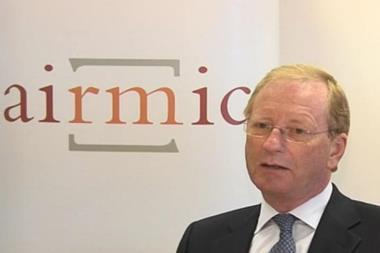Corporate governance, climate change and ERM all topped the agenda at SWERMA's annual conference
A risk manager survey, corporate governance, climate change, enterprise risk management (ERM) and the captive insurance market, all topped the agenda at SWERMA’s (Swedish Risk Management Association) Risk Forum 2008, which took place in Stockholm in the last week of March.
Charlotte Barnekow, SWERMA’s chairwoman, opened proceedings with a presentation of the association’s 2008 risk manager survey. The findings suggested that risk management in Sweden has become more widespread than in previous years.
Representatives from FERMA outlined the current issues occupying the European risk management body. General secretary Pierre Sonigo explained how FERMA was working with the European Parliament to simplify implementation of Solvency II, particularly to reduce the burden on captive managers. Outlining FERMA’s position on the thorny issue of broker remuneration, Sonigo said: ‘[The association] would like more transparency.’
FERMA is also lobbying the EU on the issue of co-insurance. Removing the system of co-insurance would be detrimental to the European insurance industry, explained Sonigo.
As part of a working group on the environmental liability directive, the association is also working to establish clarity around assessing new risks and providing financial protection.
FERMA is not currently in favour of the ISO risk management standard, said Sonigo, but as many of the association’s members are not in agreement on the issue this position could change.
In the next session, Elisabeth Styf, of the Swedish National Debt Office, talked about corporate governance in Sweden. The attendees debated new European corporate governance regulations. Carina Lundberg Markow, manager of external corporate governance at Folksam, Sweden’s insurer of the year, said corporate governance was an important investment criteria for stakeholders.
Climate change was also on the agenda. Martin Hedberg, a meteorologist at the Swedish weather and climate change centre, explored the possible consequences for society. He suggested conflicts could arise due to the mass movement of people and a lack of access to clean water. Urging companies to take up renewable energies, he said, the responsibility for combating global warming lies with many stakeholders but only a few are prepared to act.
The benefits of ERM were also discussed. Standard & Poor’s Alf Stenqvist told attendees that the agency was considering extending ERM to the rating of non-financial firms.
With ERM companies have a better understanding of risk eventualities that could help beef up their rating, he said.
A panel, including; Rustan Svensson of Zurich Denmark, Einar Östlund from Hannover Re, Fredrik Furugren at Willis, Pia Lundberg chair woman of loss adjusters SFOS, and Anders Carlsund, managing director of S:t Erik Försäkring, discussed the future of the Swedish insurance market.
Recruiting and retaining talent was highlighted as a major challenge for the industry. There are too few young people employed in the insurance sector, said Furugren. Carlsund said Swedish companies should consider deploying ERM and opening more captives. The insurers discussed rating levels and the consequences of that. Consolidation in the broking sector was set to continue, said Willis. And adjusters will increasingly look to provide customers with more statistics on claims, according to Lundberg.
In closing, Gustaf Hamilton, the so-called ‘father of risk management in Sweden,’ presented the prize for risk manager of the year to Anders Bjärnehäll of AkzoNobel.



















No comments yet